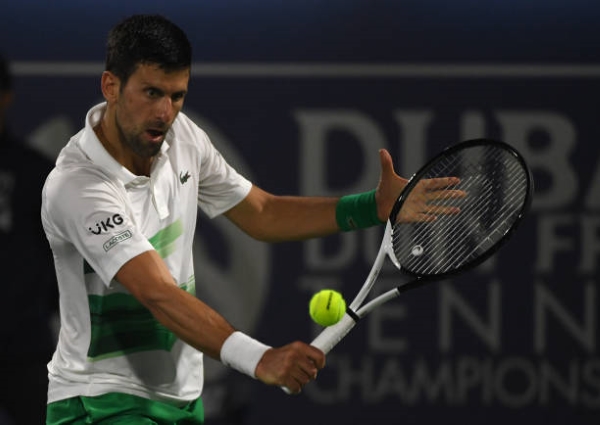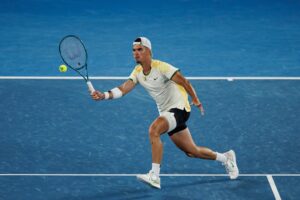A bad week for Novak Djokovic has finished very happily. Vaccine mandate changes mean the French Open, and possibly the US Open too, is back on the cards for him this year. On Thursday, the French government announced its national COVID pass restrictions will end on 14 March. That pass would have kept Djokovic sidelined at Roland Garros, as the unvaccinated were prohibited from entering France. Now, he will be able to defend his title after all.
More good news has come from the United States. Mayor Eric Adams has announced that from 7th March, New York City’s vaccine mandate is set to end. This would remove a major obstacle to Djokovic’s participation at the US Open in August, though the United States’ current ban on unvaccinated travellers entering the country at all may still keep Djokovic away.
Nonetheless, any good news is welcome to a man in desperate need of it. It’s been another tricky period for Djokovic. Last week, his long-awaited return to the courts ended in a shock quarterfinal defeat to Jiri Vesely. That defeat also conceded his spot as world #1 to Daniil Medvedev.
The end of his relationship with long-time coach Marian Vajda has also been made public, though they stopped working together at the end of 2021. Then there is his enforced absence at the upcoming Indian Wells and Miami, arguably the two biggest ATP events on the calendar, due to that ban on unvaccinated US entry. Djokovic has been incredibly successful there in the past, winning 11 titles across the two tournaments. After missing both events in 2021, significant ranking points will again go begging.
But now, Djokovic has something to celebrate. His rather empty calendar is starting to fill up. The announcement from France opens the door to playing the Monte Carlo Masters in April, while the Madrid Open becomes a probability in May. Spain has no vaccine mandates in place at all, and Djokovic is now a permanent resident in the country.
A lot can still change, of course, but the signs are promising. This year, Djokovic has essentially been a part-time tennis player. He has been entirely and publicly at the mercy of national laws and vaccine restrictions, a situation that exploded so bizarrely in Australia. To put it mildly, he has divided opinion. His own stance, though, has never wavered. As a hyper-competitive and intensely-focused athlete, it won’t be easy for him to miss so many tournaments. Mentally it is a strain, and his on-court level is likely to suffer too.
But as he told the BBC recently, it’s a price he is willing to pay:
‘The principles of decision making on my body are more important than any title or anything else. I’m trying to be in tune with my body as much as I possibly can.’
Nevertheless, Djokovic is determined to battle on. The vaccine saga has proved a roadblock, but at 34, he still has several years left in his career. But if he is not going to take the vaccine, then he needs rule changes that will allow him to play. If he is not going to blink first, he will need to wait.
That is why these sudden mandate reversals are so important for Djokovic. They hint at a future where he can play his tennis just as he used to. If Paris and New York can change their mind, perhaps everywhere else can too.
Remember, New York was one of the first American epicentres at the start of the pandemic. It has consistently had some of the toughest rules to combat it. It was the first US metropolis to require vaccination for indoor events
A reversal on that policy is a big milestone, and rules are relaxing elsewhere too. Two years after the pandemic started, zero-COVID policies are starting to be phased out. National borders long closed are now being re-opened.
Some countries, particularly in Europe, are dropping measures like pre-flight testing and isolation periods. Nations including Portugal, Greece and Croatia are even relaxing vaccination requirements – a development that Djokovic will watch with interest. There have not been matching changes from the United States and Australia. But there is still time.
While we are far from ‘normality’, there are signs that we are heading in that direction – and away from spectacles like Djokovic’s deportation from Australia. It may not be long before we see him making news for his tennis again, rather than the lack of it.
Main photo:
Embed from Getty Images






